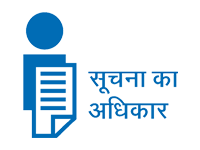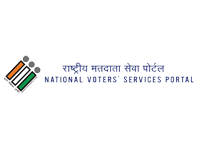PLANNING & COORDINATION
Planning is a conscious process of selecting and developing the best course of action to accomplish clearly defined objectives. A good planning involves three elements: a vision; an agenda and set of priorities and scale of operation. A good plan articulates a vision of the institution in the language and symbols by which it comes to understand what the institution wants to become and achieve. Vision statements are avowal of purpose that relates to the present contexts and long-term expectations.
Planning involves a series of successive steps.
- (i) determination of the objective.
- (ii) consideration of possible courses of action to achieve the objective
- (iii) selection of the best course of action
Thus, planning may be considered as a rational, dynamic and integrative process.
Planning and management thus play a pivotal role in implementing the programmes of the Council. These are: funding of research projects; sponsoring of research fellowships; promoting exchange of scholars and joint academic programmees through Cultural Exchange Programme(CEP) and bilateral agreements with other countries; making special efforts to initiate programmes in the North East; sponsoring of training courses, seminars; conferences; workshops; providing surveys of research in different disciplines; supporting premier research institutes as centres of excellence; maintaining regional centres as Council's outposts; providing documentation services providing study grants and supporting network of data banks to share quantitative data and other resources through specialised programmes like Data Archives and National Social Science Documentation Centre.
The Council is constantly engaged in improving its infrastructure and refining its competence to realize its objectives and its performance. The Council has taken the following steps in this direction.
Strengthening its existing programmes, schemes and activities;
Monitoring the performance of various schemes and activities;
Bringing out Surveys of researches to aggregate the research outcome and make this available to the users of knowledge and information; and Initiative in bringing together groups of senior social scientists and experts from time to time to prepare agenda for detailed studies and research, which in turn would benefit policy-makers and the researchers.
Undertake follow-up action on the research agenda to be taken up in the coming years.
Besides these, the Council has taken the following steps to strengthen its physical infrastructure and support system.
Improving the facilities of the Guest House and the Hostel at the Headquarters to provide accommodation to scholars and visiting social scientists at a reasonable cost;
Renovating and upgrading its existing Library and Documentation Center to a modern state of art facility at the old campus at 35, Ferozeshah Road, New Delhi
Strengthening its Secretariat in terms of suitable office space and improved functioning by computerization of its operations. All the Divisions have been provided with computers and the staff is being trained to strengthen the Secretariat. The record keeping system is also being given adequate attention. There is already a move to build a separate record room and softwares to develop, maintain and retrieve records.
Considering the need for the enlarged and intensive role of the Council Secretariat, the Council has taken a bold step in trifurcating the administration into three inter penetrating and yet independent sections under three officers. These are the sections dealing with establishment, personnel and administration; planning and coordination; and estate and welfare with specific duties and responsibilities.





